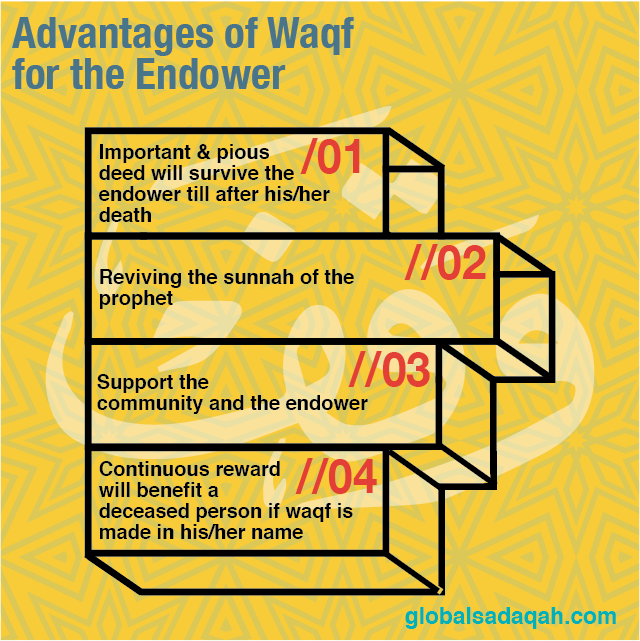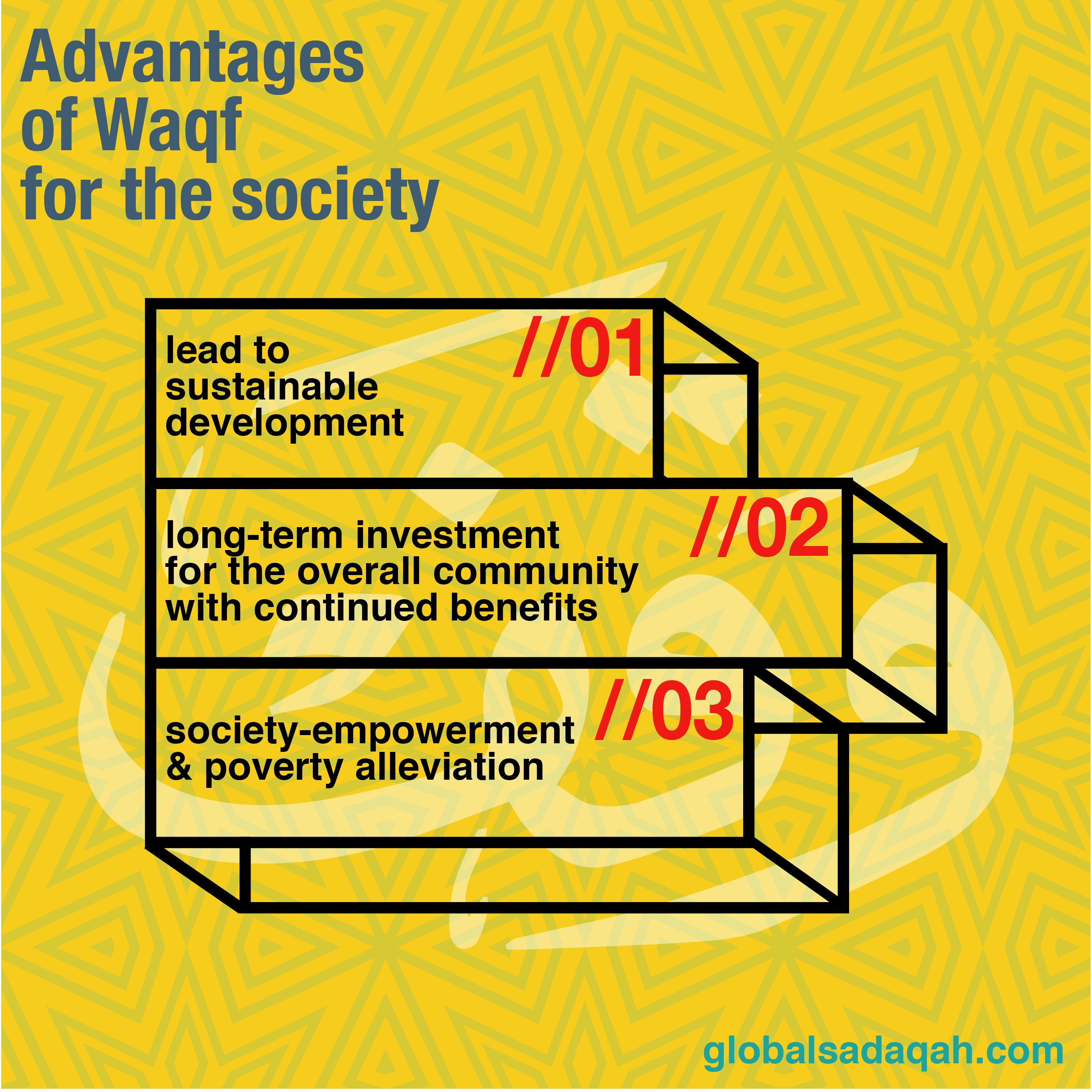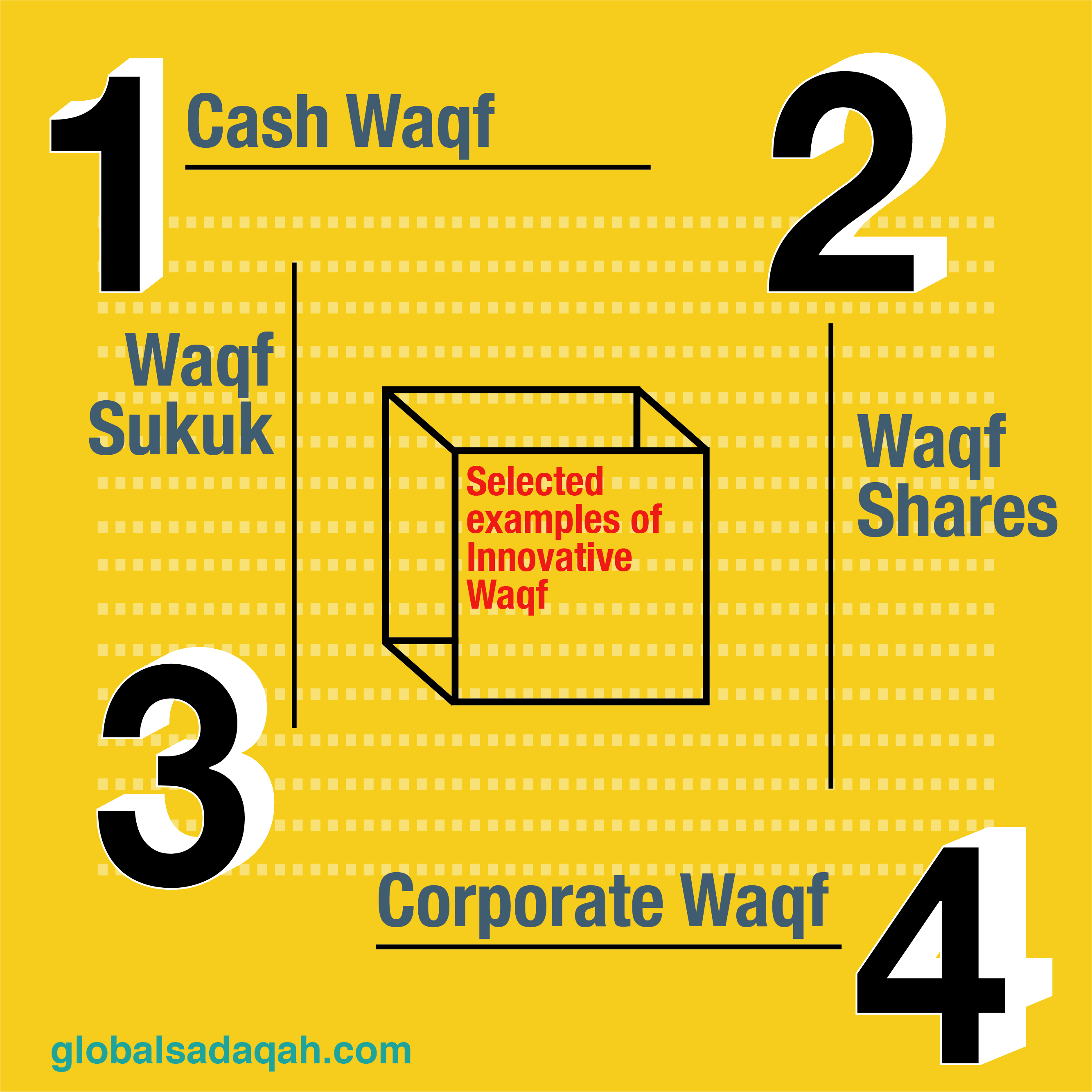Don’t believe it? Yes, it’s true! There is no direct mentioned of waqf in the Quran. Instead, waqf which refers to a religious endowment i.e. a voluntary and irrevocable dedication of one’s wealth or a portion of it – in cash or kind, and its disbursement for Shariah compliant projects is mentioned in several hadiths (traditions of Prophet Muhammad pbuh). One of the more prominent hadith is about the land owned by Sayyidina Umar Ibn Al-Khattab (r.a.) in Khaybar. According to the narration, Sayyidina Umar Ibn Al-Khattab (r.a.) got a land in Khaybar and so he went to Prophet Muhammad (pbuh) asking for advice about it. The Prophet (pbuh) then advised him to make the property inalienable and give the proceeds to charity. This instruction is a clear form of waqf. Apart from the above, Prophet Muhammad (pbuh) in another hadith again mentioned about waqf. According to Prophet Muhammad (pbuh), “When a man dies, only three deeds will survive him: continuing alms, profitable knowledge and a child praying for him.” It is noteworthy to highlight that waqf is a form of continuing alms.
Importance of Waqf
Even though there is no direct injunction of waqf in the Quran, one must not undermine its importance, especially when it creates great benefits for both the endower and society. From the perspective of the endower, through waqf creation, an important and pious deed will survive the endower till after his/her death. Apart from reviving the sunnah of the Prophet (pbuh), the establishment of waqf can also help to offer support to the community and endower. Finally as waqf donations can also be made in the name of a deceased person, the continuous reward achieved through waqf will greatly benefit the deceased person.
Advantages of Waqf for the Endower

From the perspective of society, waqf is seen as an essential pillar of the religion, social, cultural, scientific, economic and political life of the Islamic society, which will eventually lead to sustainable development. Waqf is seen as a long-term investment for the overall community with continued benefits. Finally with successful implementation of waqf, both society empowerment and poverty alleviation will be achieved.
Advantages of Waqf for the Society

Waqf Innovations
To further revitalize the waqf system, innovations have taken place. Some innovative mechanisms founded upon revitalizing the waqf system include cash waqf, waqf-shares, corporate waqf, waqf sukuk etc. Global Sadaqah also practices waqf innovation as waqf can now be performed online through its platform. Recently through the Global Sadaqah platform, waqf can be performed online for the successful development of the Baytuna Residence (social housing development in Indonesia) musollah.
Selected Examples of Innovative Waqf

Concluding Remarks
Eventhough there is no direct injunction of waqf in the Qur’an; one must not undermine its importance. This is because through waqf, both societal and economic developments are achieved. Admittedly, there are some limitations in the overall waqf system; these are somehow addressed through the development of innovative waqf mechanisms. It is also hoped that through waqf innovations, some of the waqf potentials that have yet to be tapped can now be tapped upon. Finally, if utilised properly and effectively, waqf can be regarded as a highly effective platform for sustainable economic growth and an important mechanism for wealth distribution.

